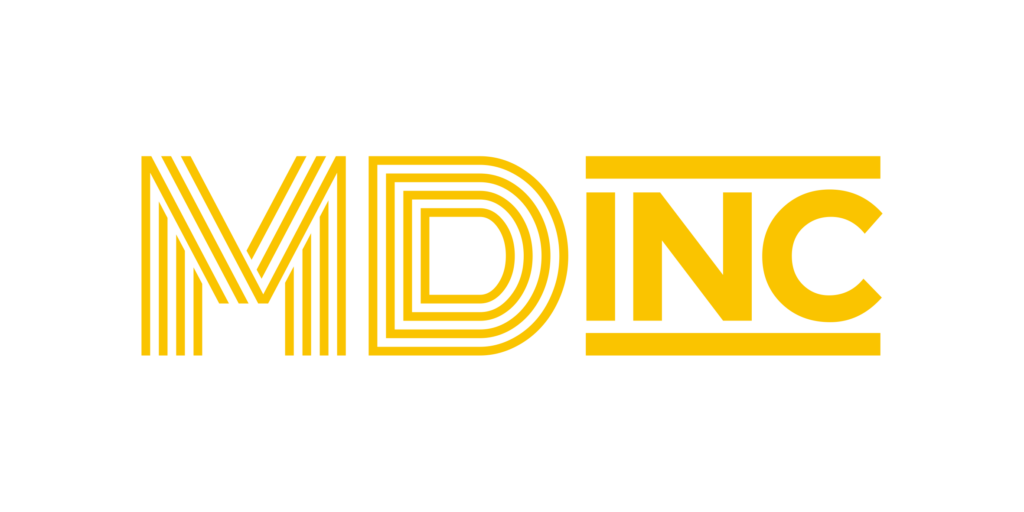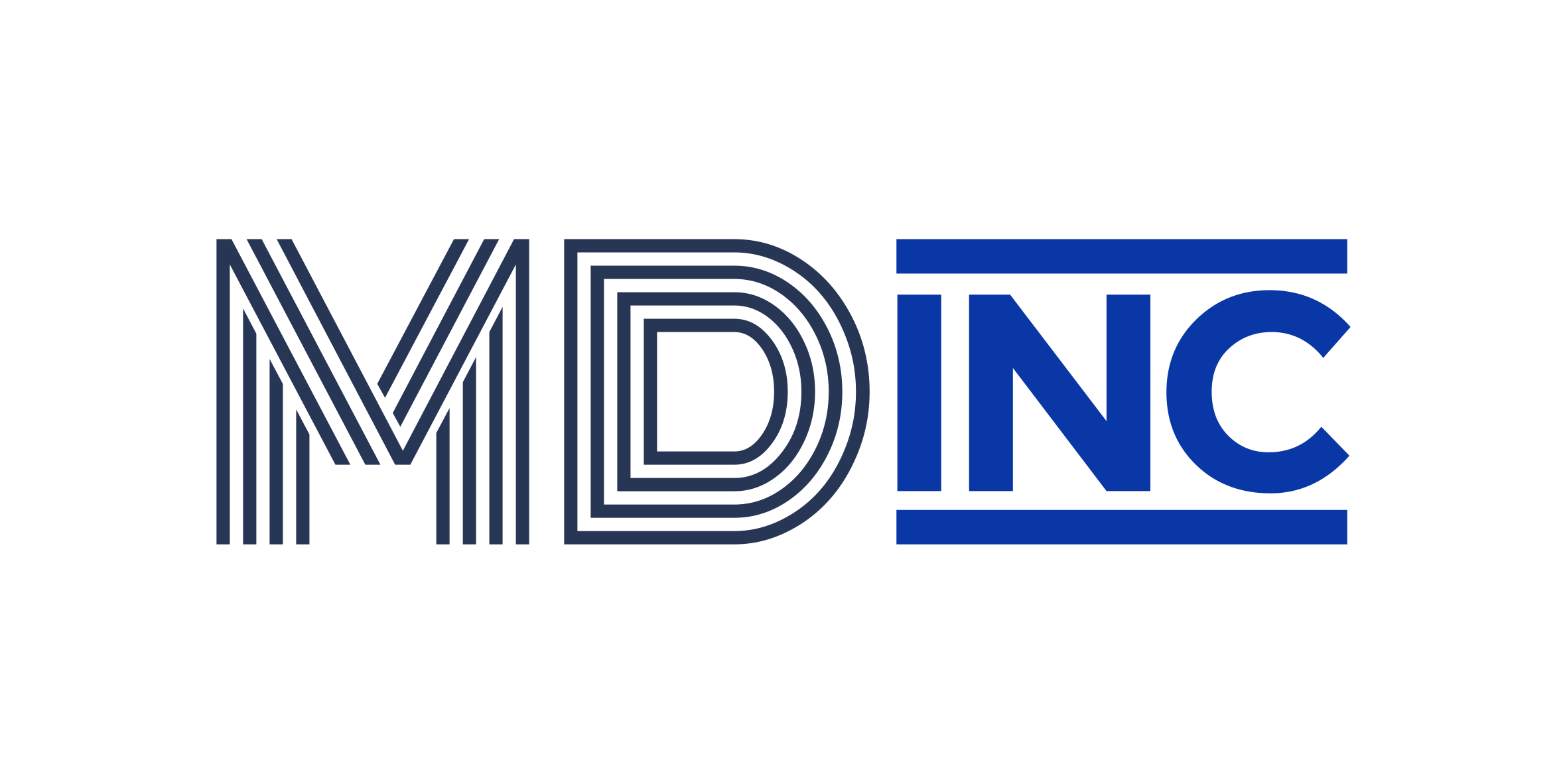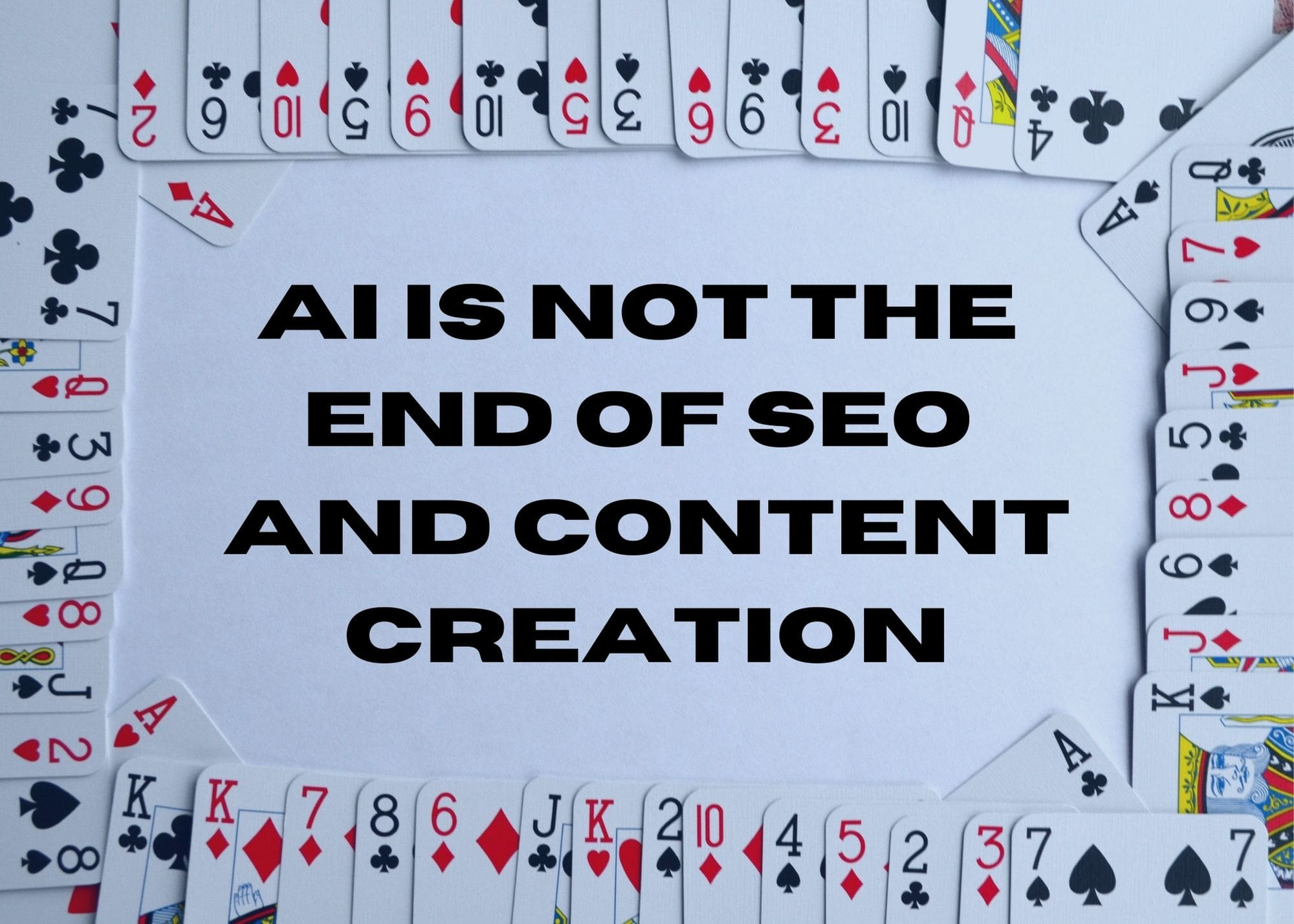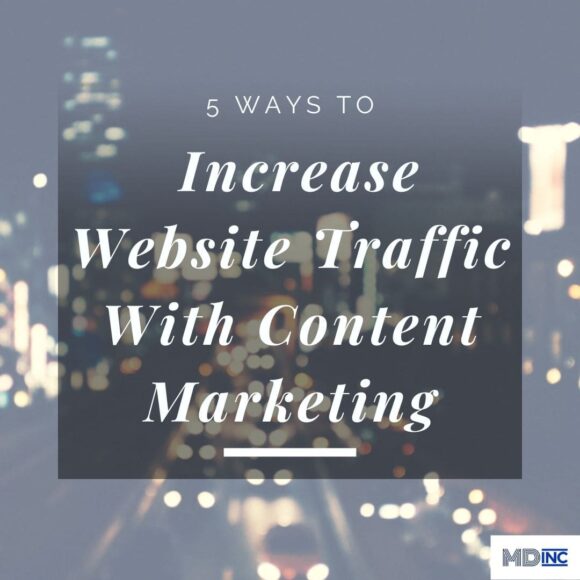AI is Not the End of SEO and Content Creation
You cannot throw a stone in any direction on the Internet without hitting an article about the demise of the copywriter due to AI. It’s led to human-written content creation and, of course, a bunch of AI-written content that is meant to prove a point. Sites like Bankrate have disclaimers when it was written by AI and edited by a human — which is a nice touch in the name of journalistic ethics.
So is AI-written content going to lead to the ultimate demise of the talented copywriter, SEO writer, or subject matter expert? We have three reasons why humans will prevail. Read on to learn why human-written content is king and queen and why AI-written content is the joker aka wildcard.
What is AI-written Content?
Let’s consider Google and the Internet: 101. Perform a quick Google search and you’ll see that they’ve aggregated several websites they believe to be a good match based on other people that have searched for the same thing. It’s a basic “if this, then that” type of response. Over time, more listings will come up, Google tries A/B testing to see what’s the better (or best) match, and voila — SEO is king (time on site, bounce rate, clickability etc. are all SEO factors).
AI is similar to Google in that it aggregates the “best of” results for a topic within certain parameters. If you ask it to write a haiku about a bird, an article about a bird and holistic medicine, or a childs’ book that rhymes, it can do all of the above based on its crawling of websites and parameters. It will deliver the results in the form of paragraphs, an academic paper, or a product description. AI is your oyster.
1. Content Creation is Living
The benefit of having a subject matter expert write an article or product description is their ability to research (what do I need to know?), perform critical thinking (why is this important?), and synthesize (what does it mean?). If you spent time and money on your branding guidelines where tone of voice is crucial and localization is imperative, you value consistent brand identity.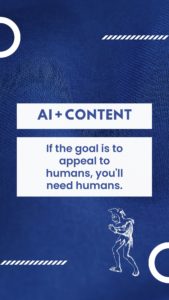
Content creation should not be simply for the sake of content on a website with a spaghetti-on-the-wall approach for SEO. Thinking, “something will stick” may make everything a bit messier.
With a consistent message across all pages (ahem, blogs) you’ll see an increased amount of engagement because people will know what to expect and have a consistent experience.
2. Content Creation is Human
We all remember Hal. He didn’t want to open the doors and chaos ensued. He heard thoughts, musings, and felt concerned. AI for content creation is not quite there. Beyond IQ (intellectual quotient) and EQ (emotional quotient), humans have a certain level of empathy that is hard to emulate authentically. Make no mistake, content creation is an empathetic task. You are not writing for yourself. You are writing for an audience first and Google second.
Marketing is not just one thing. It’s a holistic approach that helps your brand feel authentic to potential customers. Nuance, localized references, and evergreen content help make the content creation process what it is.
3. AI-Content Still Needs a Human Touch
You can program AI to adhere to your requests and it can provide a compelling article. It can aggregate facts about a topic that it deems important. At the end of the exercise, however, a human must read the content before publishing. Just because a statement is repeated on multiple websites does not make it true or accurate. The Internet cannot be trusted in all things every time.
Often, original content creation is simpler and less expensive than fixing the mistakes of others. Consider building a home from scratch with everything you want rather than replacing things that are not to your liking—you’re still going to do the work but the authentic build will be better than the fixer-upper.
Contact MDINC today to learn more about the impact human content creation can have on your customers and your bottomline.
